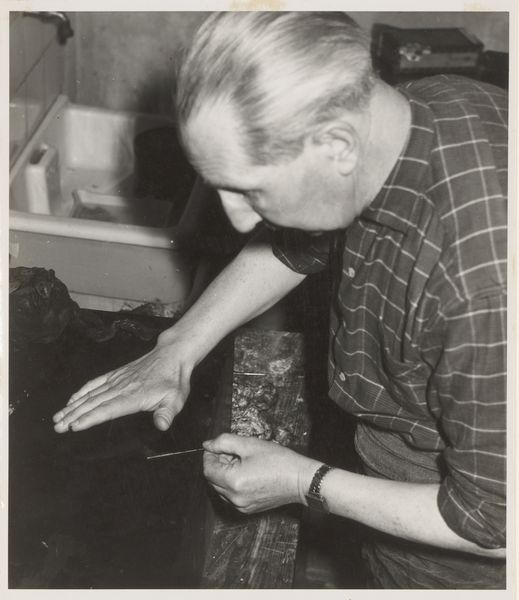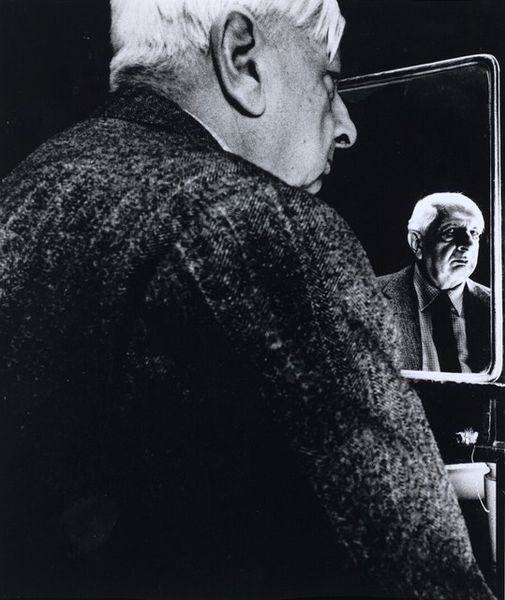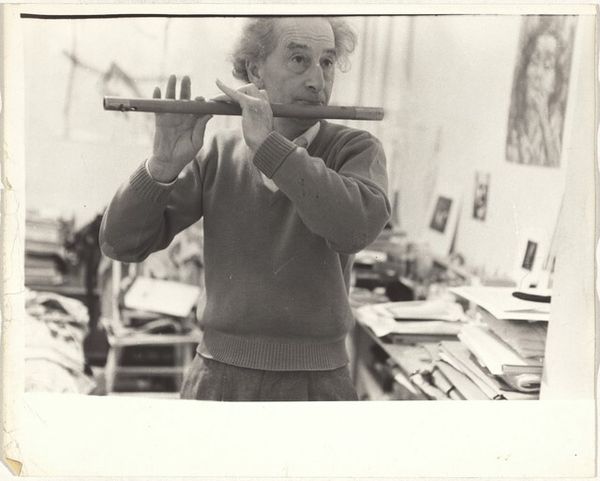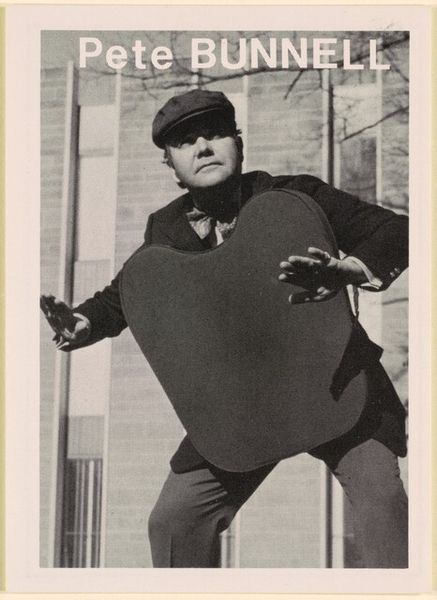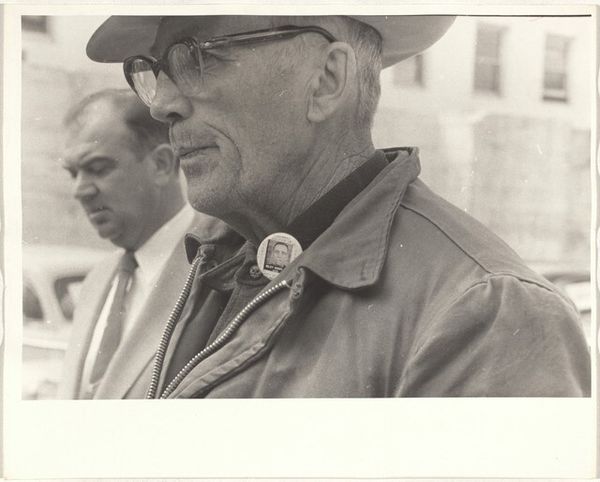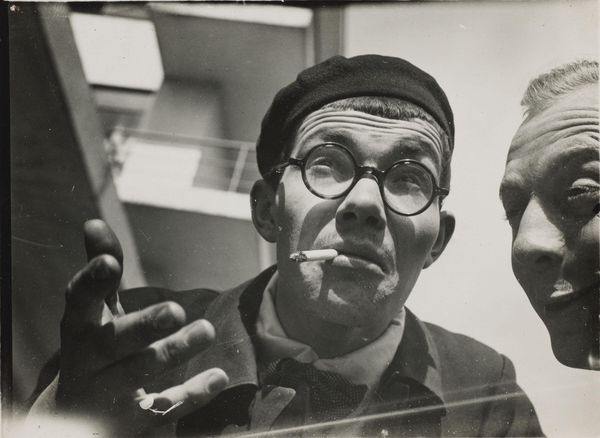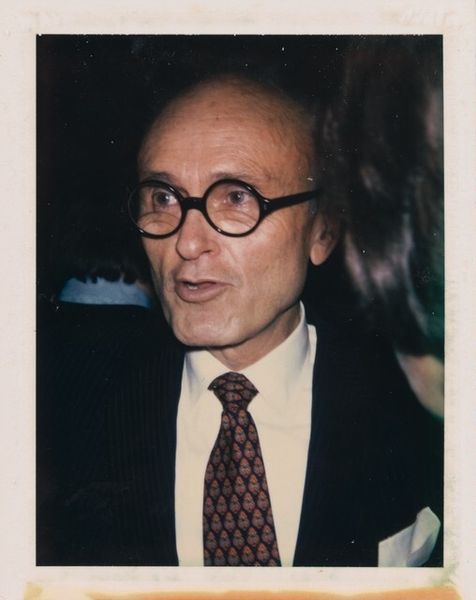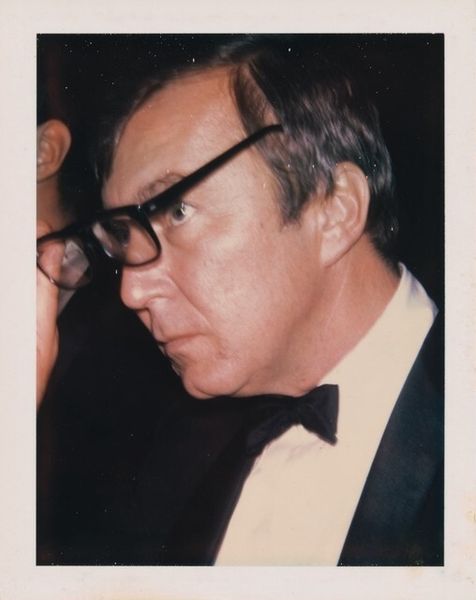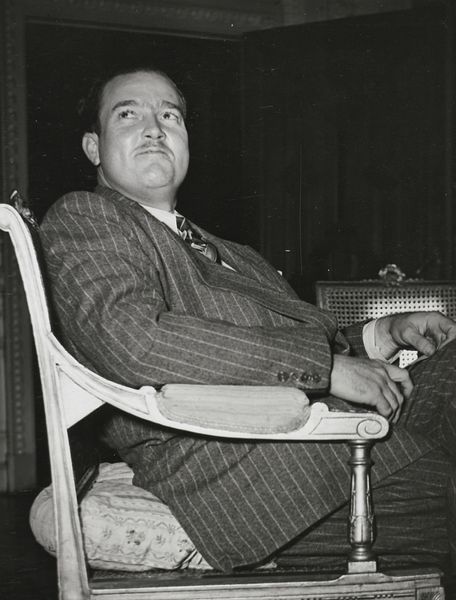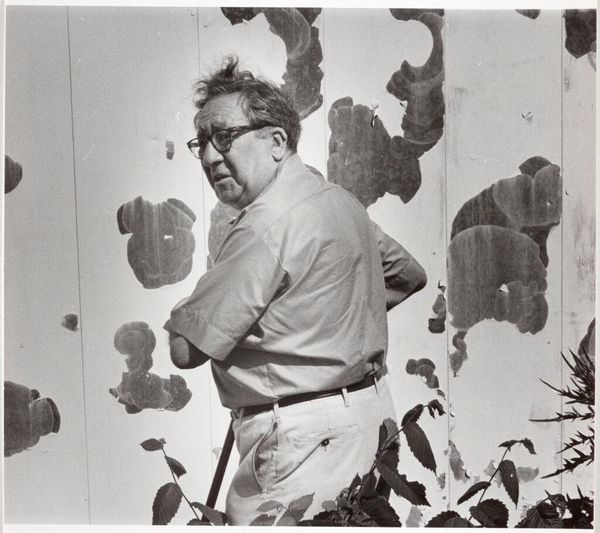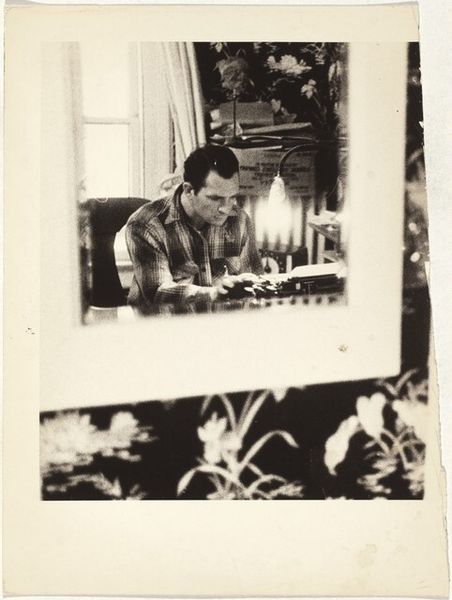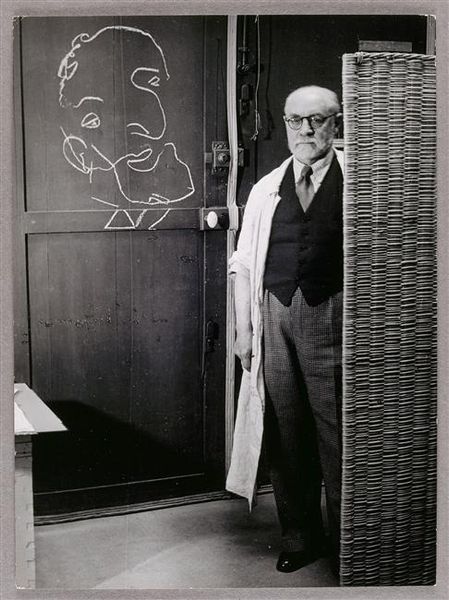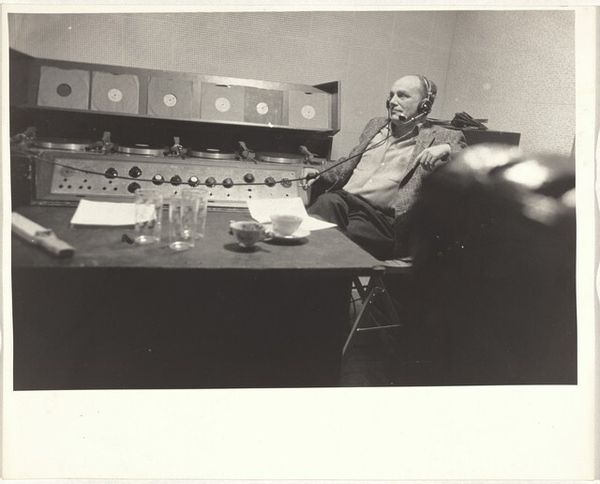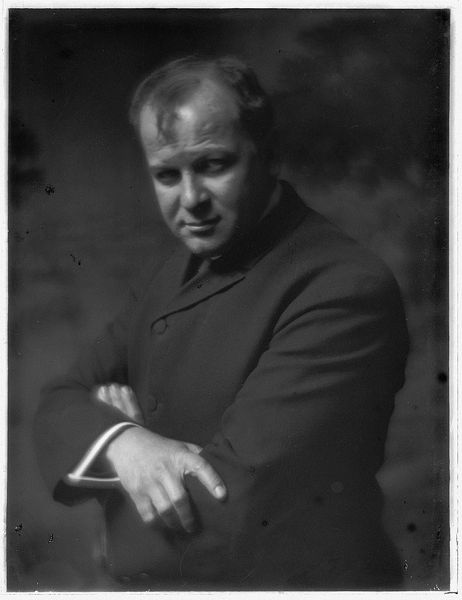
Dimensions: support: 239 x 160 mm
Copyright: © The estate of Július Koller | CC-BY-NC-ND 4.0 DEED, Photo: Tate
Curator: It's quite striking, this silver gelatin print. The diagonals formed by the cue and the edge of the pool table create a compelling tension. Editor: You're referring to Július Koller's "Universal-Cultural Futurological Operation." Koller, born in 1939, explores social and political themes through his work. Curator: Yes, and the high contrast intensifies the focus on the subject, drawing the eye immediately to the artist himself. The monochrome palette underscores the starkness of the scene. Editor: Indeed. Consider the cultural context: Koller's work often challenged the normalization of communist ideology in Czechoslovakia. The billiard game could be read as a commentary on power. Curator: I see it more as an examination of form—the circular emblem on his sweater contrasting with the geometric planes in the background, it's a study in shape and light. Editor: Perhaps. But it's crucial to recognize how Koller used commonplace activities, like playing pool, to disrupt societal expectations and communicate his ideas. Curator: I appreciate the interplay between the formal qualities and historical context. It certainly enhances the viewer's comprehension. Editor: Precisely, both are essential for a richer understanding.
Comments
tate 8 months ago
⋮
http://www.tate.org.uk/art/artworks/koller-universal-cultural-futurological-operation-t12430
Join the conversation
Join millions of artists and users on Artera today and experience the ultimate creative platform.
tate 8 months ago
⋮
Universal-Cultural Futurological Operation is a photograph showing the artist pretending to use a bicycle pump on a ping-pong ball. He is wearing a large badge bearing his initials, ‘J K’. Koller often used his initials to designate himself, and they became more than just a reference to his name. He explained: ‘J.K. is my logo. In Slovak, J and K are also the initials of Jesus Christ. They allude to the humanist culture that forms the fundamental concept of my life. From that comes a universal concept which says that humans are beings between heaven and earth.’ (Quoted in Böhler and Seidl, p.144). The absurd gesture of trying to pump up a ping-pong ball recalls Koller’s early interest in Dada. The photograph is reminiscent of the series of self-portraits taken by Koller once a year from 1970 onwards, entitled U.F.O.-naut J.K. (U.F.O.) in which he often posed with everyday objects – including ping-pong balls placed in his eye-sockets (see U.F.O.-naut J.K. (U.F.O.) 1970 and 1980, reproduced in Rhomberg and Ondák, p.6 and p.15).
